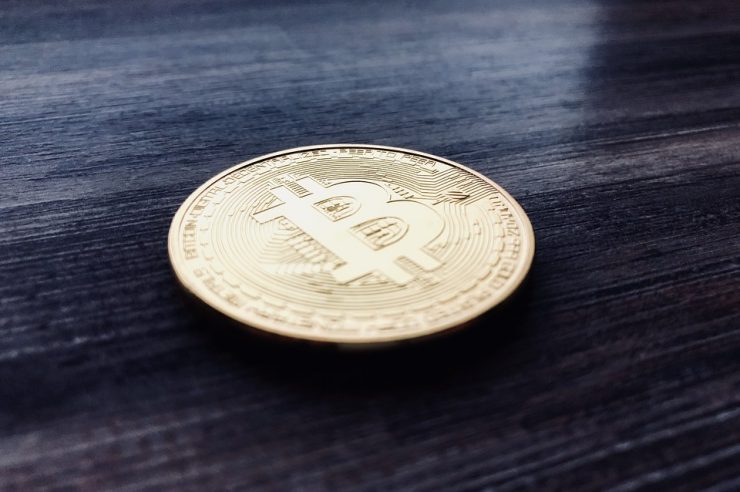There has been a lot of buzz around cryptoworld in the past years and why not decades. But one thing is clear – there is no centralized solution. Regulations are not really up the wheel house of most crypto operators.
Well, as more banks and governments become involved, it’s easy to see why more institutional involvement is to be expected. All of this is possible and it’s beginning to shape up. Let’s have a brief look at crypto regulation around the world.
Canada
The Canadian financial regulator authorities have long known that cryptocurrencies aren’t going anywhere. Plain and simple, the country will need to adapt and that’s precisely what the Canadian Securities Administrators (CSA) and the Investment Industry Regulatory Organization of Canada (IIROC) want to address right now.
The pair of institutions have worked out a regulatory framework helping them consolidate the fintech industry with cryptocurrencies and give everyone a push into the future. A special report was published on Tuesday last week to this end.
There has been a lot of calls to adapt to the quick-changing future, which will feature cryptocurrencies heavily. There have been a lot of people welcoming the move, including IIROC President Andrew J. Kriegler who had the following to say:
We must adapt to innovation, and provide clarity to the market about how regulatory requirements might best be tailored and applied to these unique business models, while maintaining investor protection.
Mr. Kriegler is right to believe that cryptocurrencies and fintech will introduce a new period of growth for everyone involved in Canada’s fintech and cryptocurrency industry, not to mention the real-world implications that promise to:
- Boost every industry that requires coordination at home and abroad
- Expedient banking transfers taking only seconds and less than $1 to complete
Cryptocurrencies and blockchain platforms can move freely and regulating them would help Canada get a head start in an industry that has already shown interesting signs of growth
Regulating crypto must happen soon and preferably before superpowers such as China have launched their own blockchain/national digital currencies.
Regulating the United States
It’s difficult to find a consistent legal approach the United States. The country is broken down into multitude of regulations and you will notice that each state mandates how to treat cryptocurrencies and blockchains.
The Financial Crimes Enforcement Network (FinCEN) doesn’t specify that cryptocurrencies are “legal”, but then again FinCEN doesn’t really seek to introduce restrictions and penalize parties that mine cryptocurrencies or amass them.
However, as the recent case with OneCoin demonstrated, the US is particularly sensitive if the financial regulators suspect any sort of foul play. Foul play is not something the US Securities and Exchange Commission nor the Internal Revenue Service (IRS) would gladly settle for.
Because of the attempts of countless companies and individuals to game the system an amass a fortune, the regulators have developed a very openly gung-ho approach towards any attempt to cheat and lie.
In so far as regulation goes, the United States will definitely lead the pack. For starters, the SEC doesn’t mind crypto-exchanges. If everything is played by the book, then nobody really has anything to worry. It must be mentioned that SEC and the Commodities Futures Trading Commission (CFTC).
So far, little is known how DOJ, SEC, and the CFTC will play out the whole regulation thing. There are a lot of moving parts and it’s definitely quite difficult to get a proper read on the industry for what it is.
Germany
Germany is most certainly one of the more important markets when it comes to cryptocurrencies. Therefore, it’s important to understand how the market will be regulated moving forward moving forward.
Germany is expected to adopt a regulatory framework concerning cryptocurrencies before July 1, 2019. When this is done, the country will become one of the few alongside South Korea, to actually take care of this new way of trading money, paying and more.
Today, cryptocurrencies are legalized as a legal tender:
In some other countries, for example in the USA in 2015, the cryptocurrency is recognized as a commodity. It follows from them that for receiving income from its turnover, individuals and commercial organizations are required to pay taxes.
Germany is also determined to regulate digital assets in accordance with international law, not just own interpretation of it. The head of the Central Bank Joachim Wuermeling is a firm believer in this.
It’s all very complicated, though, and Germany realizes this.
What’s Wrong with Lack of International Crypto Laws?
Germany is quite right to expect an international legislation. There are multiple reasons for that. Australia, which is not the most crypto-friendly country, already has 250 exchanges – not all are legal and approved by regulators, but they operate nevertheless.
With this in mind, the United States only has a fraction of that number, with at least 100 patent approvals down the pipeline. Meanwhile, Sweden wants to create an international crypto system and cryptocurrency.
At the same time, British officials are scornful of the suggestions.
In a word?
The world is a very confused place for cryptocurrencies, and Germany’s advice must be listened. What’s needed is a global alliance and sustainability which will allow everyone to operate and work together, rather than breaking it all down to individual countries, states, departments.
Nevertheless, you can’t really on a segregated crypto market, because this is a self-defeating initiative. Why build anything for the future if it’s going to be compartmentalised, but worse – end up in isolation…
Is South Korea a Great Example?
South Korea is a great example indeed. The country has been very pro-cryptocurrency, but incidentally, South Korea is also the one place where the most crypto-exchanges have been hacked. Some say it’s the work of Chinese, North Korean and Russian hackers.
That’s almost certainly true and while there is no real evidence to suggest that, there’s have been a lot of report about North Koreans fuelling their regime off pick-pocketed cryptocurrency.
Despite the liberal approach towards cryptocurrencies in South Korea, there has been a lot of concern that a lot of citizens are actually switching to crypto.
What does this mean?
Put plainly, citizens are trading their hard cash for digital assets in the hopes of multiplying their riches, and not least because it’s very easy to use them around the country. South Koreans are quite happy to let you pay in crypto – no questions asked.
With this in mind, it’s easy to see why officials are trying to warn their citizens that there are multiple risks in dealing exclusively in crypto:
- Devaluations are rapid and immediate
- Hackers can steal the assets on a whim
- There’s no international consensus
These problems may not seem like much and you might argue – but even banks have the same problems. Ask yourself – how many times has your money gone missing from your bank account.
To be completely secure, you will have to make quite a few efforts, of course, such as establishing everything on a separate PC with a licensed anti-virus software. It’s an expenditure and we agree, but it is what it is.
With cryptocurrencies, though, spoofing and fake-website attacks have been very common. Even smart users fall prey to very common scams. The market is indeed growing and that’s giving everyone hopes that things will be changing very rapidly and very quickly indeed.
Creating a Common Regulated Future in Which to Share Cryptocurrencies
Creating a future for cryptocurrencies and countries that can use them will definitely require a lot of effort, attention and dedication. This is precisely what many people are ready to aspire to, but it’s really complicated. Without proper centralization – think China, there’s little chance for any country to manage to achieve a common framework and work with other countries in a bid to regulate cryptocurrencies.
Legislation to Remain a Tad Uncertain
Today, we know that cryptocurrencies will remain quite uncertain, which will make them even more difficult to pinpoint. Without the world agreeing to one condition – that more control is necessary – hackers will continue poaching a lot of digital capital. There are quite a few things to take into consideration and that you will really want to sort out quickly.
However, it’s ultimately up to lawmakers to make everything work.



Comments (No)